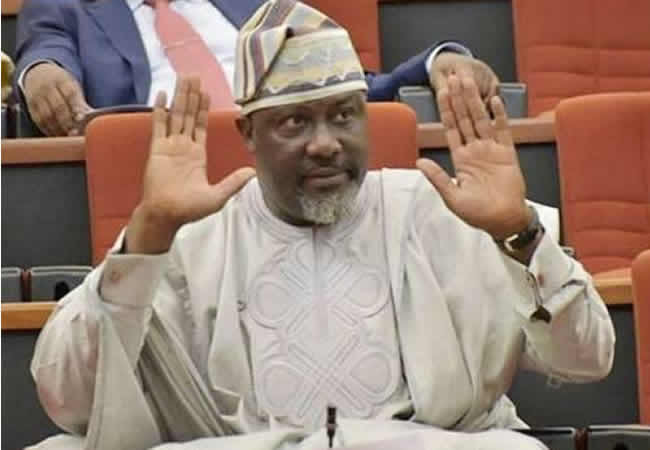Dino Melaye, a former senator from Kogi State, has publicly expressed deep remorse for his past support of the All Progressives Congress (APC), characterizing his previous affiliation as a grave error. He likened his past political alignment to a state of blindness, from which he has now emerged, seeing the true nature of the party and its governance. Melaye’s statement, made during an appearance on Channels Television’s “Politics Today,” underscores a significant shift in his political stance and a critical evaluation of his past decisions. His confession and plea for forgiveness resonate with the broader theme of political accountability and the importance of acknowledging past mistakes in the pursuit of a better future.
Melaye’s criticism of the APC administration centers on the worsening socio-economic conditions prevalent in Nigeria. He paints a bleak picture of widespread hunger and poverty, arguing that these issues are undeniably evident and impacting communities across the nation. He describes a scenario where the mere offer of a small amount of rice could lead to a life-threatening scramble, highlighting the desperation and scarcity that many Nigerians face. This stark portrayal of the current situation serves as a foundation for his argument against the APC and underscores his motivation for seeking an alternative political path.
Looking ahead to the 2027 presidential election, Melaye expressed confidence in the African Democratic Congress (ADC)’s potential to challenge and ultimately defeat the incumbent President Bola Tinubu. He emphasized the party’s current focus on building a strong and stable foundation, which he believes is crucial for presenting a credible presidential candidate. Melaye’s optimism about the ADC’s prospects suggests a belief in the party’s ability to offer a viable alternative to the current administration and address the pressing socio-economic issues plaguing the nation. This focus on party-building before focusing on individual candidates highlights a strategic approach to long-term political success.
While Melaye refrained from endorsing any specific presidential aspirant for the 2027 election, including former Vice President Atiku Abubakar, he did acknowledge Atiku’s ongoing political endeavors. He described Atiku’s actions as an attempt to “rescue” the country and unite individuals to counter what he termed the “satanic manifestation” of the APC. This carefully worded praise, while stopping short of a formal endorsement, suggests a degree of respect for Atiku’s political efforts and aligns with Melaye’s broader critique of the APC’s governance.
Melaye’s decision to prioritize party building over individual endorsements reflects a strategic approach to political maneuvering. He emphasized the importance of establishing a solid and transparent party structure before turning attention to specific candidates. This approach suggests a commitment to creating a sustainable political platform that can effectively challenge the incumbent power and offer a genuine alternative to the electorate. By focusing on strengthening the ADC’s foundation, Melaye aims to ensure that the party can present a unified and credible front in the upcoming election.
The political landscape in Nigeria is dynamic, and individual politicians often shift alliances and allegiances. Melaye’s public expression of regret and his subsequent focus on the ADC represent a significant recalibration of his political trajectory. His sharp criticism of the APC, coupled with his optimistic outlook for the ADC, signals a determined effort to contribute to a different political future for Nigeria. The effectiveness of his strategy and the ultimate impact of his political realignment remain to be seen as the 2027 election cycle unfolds. However, his current stance offers a glimpse into the ongoing political maneuvering and the evolving landscape of Nigerian politics.














